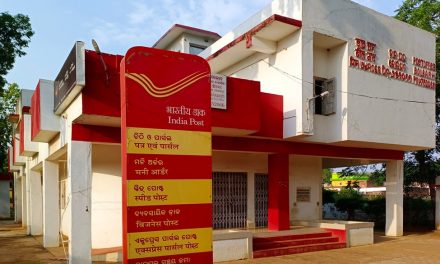
Tough norms for Indian courier companies
With private courier companies eating into the revenues of postal department, the government today sought to give India Posts exclusive rights to carry and deliver letters weighing up to 300 grams.
"The monopoly over a specific part of the letter mail of all descriptions up to a specific weight limit is essential as Department of Post is required to fulfil the Universal Service Obligation, which involves postal coverage to financially non viable areas at affordable rates for the common man," said the department, which has posted the draft Indian Post Office Amendment Bill, 2006 on its website.
Charging private courier companies of operating only in "creamy" areas and big business centres with the sole motive of earning profits, the DoP justified the move, saying "requirement of keeping a small segment of postal business was exclusive privilege aimed at providing service to deprived class of people." To address the issue of accountability and transparency, the government proposed setting up of a regulatory body as well as a dispute settlement tribunal.
The draft Bill also proposed levying a fee of up to 10 per cent of revenue of courier companies with a turnover of Rs 25 lakh and more towards USO Fund as also a registration and renewal fee of Rs 25,000 and Rs 10,000 respectively for small and medium couriers.
The fee would, however, go up to Rs 10 lakh for registration and five lakh for renewal for large couriers operating nationally and internationally.
The small of medium companies have been exempted from contribution to USO Fund.
The DoP claimed that the main thrust of the proposed amendment in the IPO Act, 1898 is to enable the department work in a liberal and competitive environment and primarily safeguard consumers' interest, besides bring in more responsibility, accountability and transparency in the mail sector. The main objective of bringing the amendment was to "achieve financial self sufficiency, reducing DoP's dependency on budgetary support." On the issue of setting up a Disputes Settlement Tribunal, the department said it was for redressal of disputes between registering authority and (among) registered service providers and consumers.
On exclusive rights to carry letters up to 300 grams, the DoP said that government may come out with a separate notification.
(THROUGH ASIA PULSE)
20-04 2006
DEPARTMENT OF POSTS SEEKS SUGGESTIONS ON DRAFT INDIAN POST OFFICE (AMENDMENT) BILL 2006
Hindustan Times 04-20-2006
NEW DELHI, India, April 20 — The Government of India's Ministry of Communications and Information Technology issued the following press release:
The postal services in the country are governed by more than a century old statute viz., Indian Post Office Act, 1898. Recent developments in the field of communications and information technology have transformed the perceptions and expectations of the consumers and have thrown challenges and opportunities before the postal operators across the world including India. To attune itself to the working in a competitive and liberal environment, the Department of Posts (DoP) has proposed a Draft Indian Post Office (Amendment) Bill, 2006 on liberalising the mail industry, encouraging competition, bringing qualitative improvements in the postal service through out the country with prime focus on safeguarding the interests of consumers of mail services irrespective of the fact that the services are provided by DoP or any private courier company.
With a view to invite suggestions and comments from the general public, the DoP has hosted the Draft Indian Post Office (Amendment) Bill 2006, on its website (www.indiapost.gov.in). The interested persons may send their suggestions and opinion to Director General, Department of Posts, Sansad Marg, New Delhi-110001 latest by May 5, 2006.
The objectives of the proposed draft bill are:
Need to update/remove outdated provisions in the existing Act. For example textual amendments like removal of references to the U.K. and Her Majesty's Government in some sections.
Empower the Government to introduce new services, etc.
Incorporate provision involving constitution and functions of the Postal Services Board.
Incorporate amendments like modification of exclusive privilege, empowering Central Government to introduce e-enabled services and financial services (money transfer instruments).
Provide means of communication to the common man at an affordable price.
Achieve financial self-sufficiency, reducing/eliminating DoP's dependency on budgetary support.
Evolve itself so as to meet customer needs in a changed communication and technological environment.
The salient features of the proposed draft bill are:
Empowering the Central Government to liberalize its exclusive privilege to convey all letters along with incidental services, with some exceptions;
Definition of "Letter" has been proposed to be incorporated;
Safeguarding the consumers' interest by provision of a clause/section for registration and accountability of private entrepreneurs, widely known as "couriers";
Provision for a separate set of fees and annual fee for renewal of registration for the registered service providers operating within and beyond India and those who operate within the territory of India;
Establishment of an independent mail regulatory and development authority for creating a level-playing field for all service providers in the mail sector including the DoP;
Setting up of a mail disputes settlement tribunal for adjudication of disputes between registering authority and registered service providers amongst service providers and between service providers and a group of consumers;
Provision for revenue-sharing by the major registered service providers for meeting a portion of Universal Service Obligation (USO) Fund of the Government of India;
Empowering the Central Government to –
Grant rebate for pre-payment of postage on postal articles by means of stamping machine
Monitor the usage, maintenance and inspection of postage franking machines
Introduce e-enabled services, bridging the digital divide in the country
Introduce customised new services and products to generate adequate resources while also meeting its USO
Provides statutory basis for the Postal Services Board;
Provision of more effective and higher monetary and other penalties for contravention of any of the provisions of the Act;
Scope of penalties widened so as to cover not only the post office but also registered service providers in case of violation of any of the provisions of the Act.
More details of the proposed amendments along with frequently asked questions are available in Draft Indian Post Office (Amendment) Bill, 2006, which can be accessed at DoP's website www.indiapost.gov.in.
Edited press releases are provided through HT Syndication, New Delhi.
COURIER FIRMS UNITE AGAINST POSTAL BILL
The Statesman (India) 04-24-2006
NEW DELHI, April 23: Angry over the govern-ment's proposal to amend the Indian Postal Act of 1898 that would translate into postal department monopolising the light courier business, the private courier operators are gearing up to go move the cour. The Express Industry Council of India, the apex courier body, said around 60 per cent of industry revenue is accounted for by documents weighing 300 gm or less. SNS













